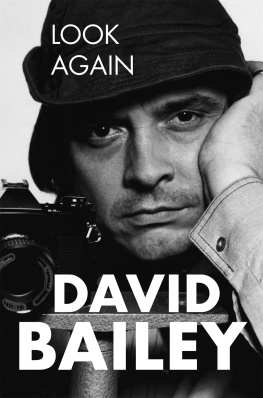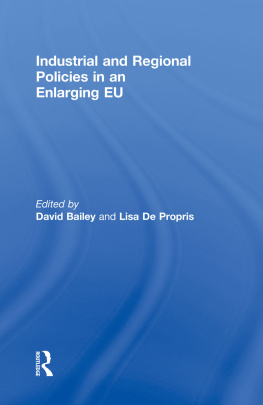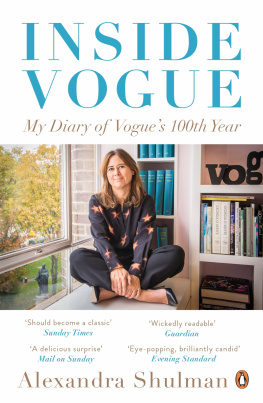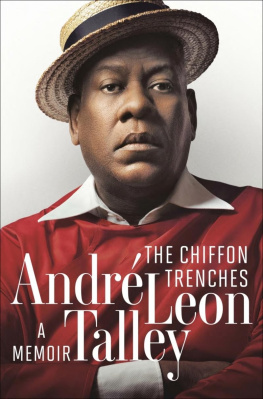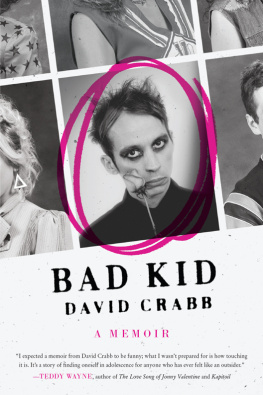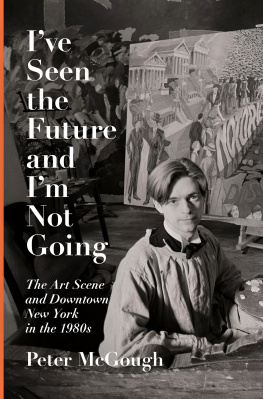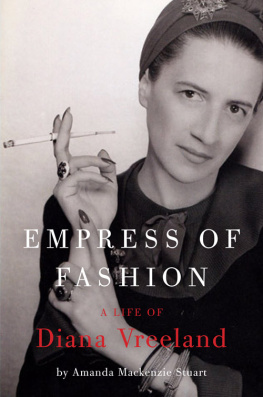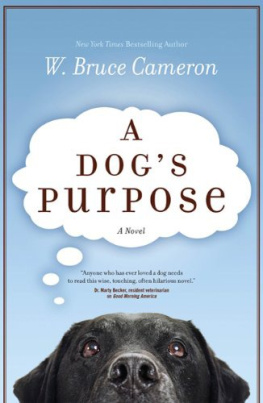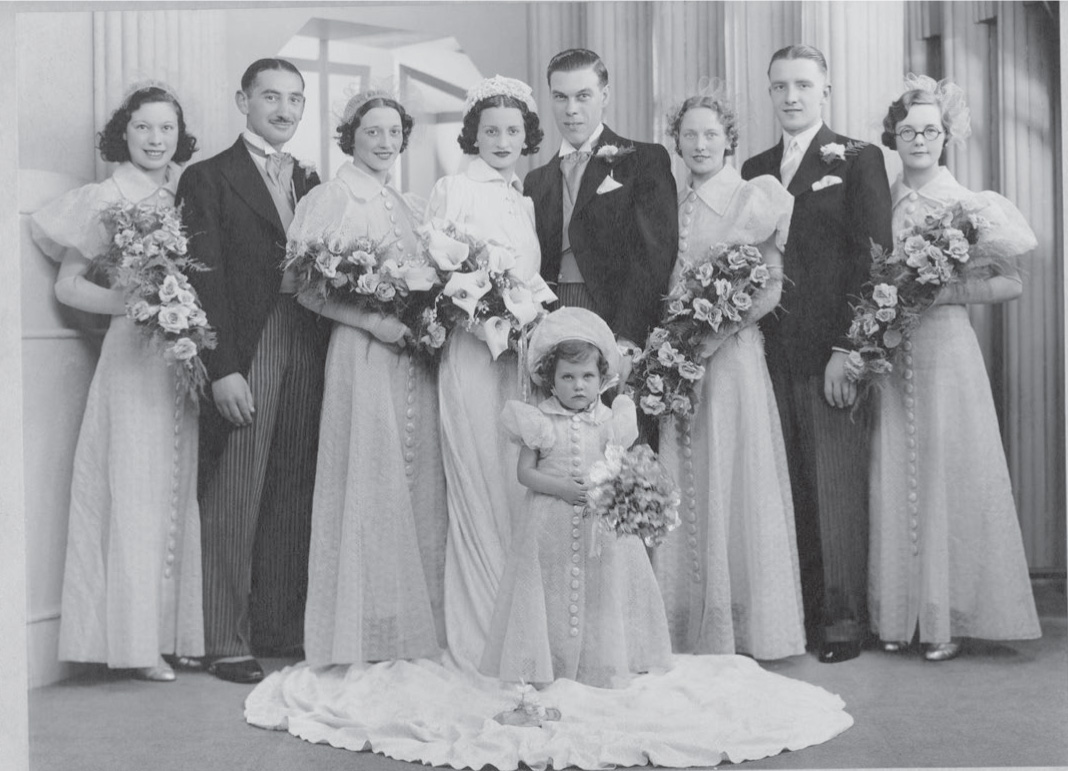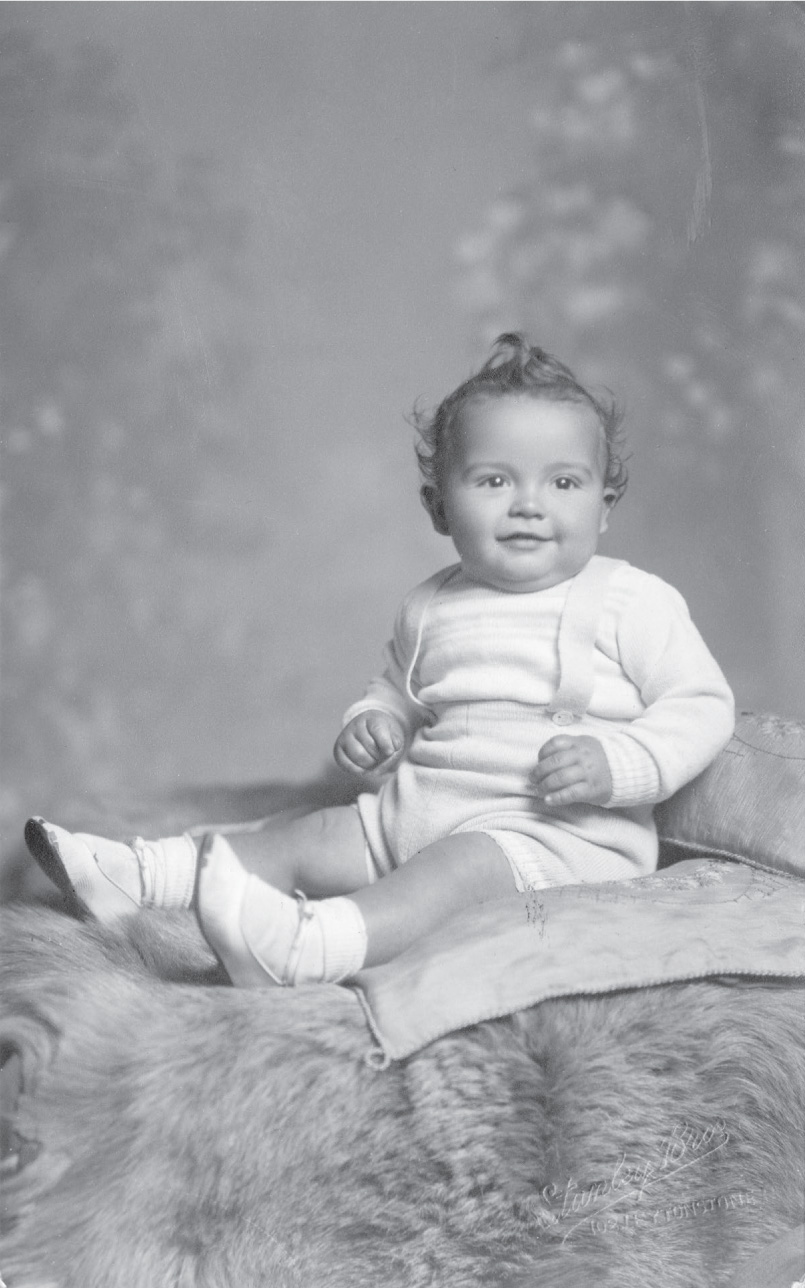Dedicated to my wife Catherine Bailey and all the guys and girls who have helped me at the studio over the years.
My mother Glad.
Glad and Berts wedding day.
Table of Contents
Guide
Chapter 1
War
The two toughest women I ever met in my life were my aunt Dolly and my mother, Gladys, and it was they who brought me up. Dolly was the complete opposite of my mother, always laughing and up for a joke, whereas my mother didnt like jokes. She was more angry, mostly at her situation. She always seemed old, Glad, whereas Dolly always seemed young.
Dolly used to say funny things to me as I got older too. When I was married to Catherine Deneuve she used to call me up and say, Hows your French floozy? Shed say, You cant keep sharpening a pencil, David. Later when I was with Marie Helvin, shed say, Here, Dave, you married a chink? Id say, Shes not a chink, shes a gook. She was full of all that East End philosophy, such as, If youre fucking and it hurts youre doing it wrong.
Its a shame Dollys not alive. She always wore a white scarf nylon probably with those big curlers. Id say, When you going to take your curlers out, Doll? Shed say, For the party. Then shed come to the party in her curlers. She never took them off. I think she was a lazy bitch. Couldnt be bothered. She was nice, she was my friend. I loved Dolly. I wouldnt have grown up so close to her if we hadnt been bombed out of our house in Leytonstone when I was four and wed all moved in together.
Leytonstone is where I was born. One of my earliest memories is of the magnolia tree in our street, in somebodys front garden. Its still there. Id never seen a tree like that in my life, the pink flowers almost glowing in all the greyness and rubble that was the East End in wartime. It was such a fantastic thing to see. I didnt know it was a magnolia tree, but at the time it was just the most beautiful thing Id ever seen. It was also the first time Id seen anything beautiful. It seemed like something tropical, as exotic as that, though I wouldnt have known to call it that. When I started working on this book I took my son Fenton and my collaborator, James Fox, on many travels into the East End, looking for the places where I grew up. Wallwood Road in Leytonstone, on the edge of Epping Forest, was the house where we first lived me and my sister, Thelma, and our parents, Bert and Gladys. I was born in January 1938, my sister Thelma in November 1939, a few months after war broke out. I hadnt been back for a while, not since they put up a blue plaque saying I was born there. Its one of those Victorian houses, built around 1850, big bay windows on the front. We only had two rooms: my mothers bedroom, then down some stairs a long narrow kitchen you couldnt swing a cat in. There were loads of families living in the house. You shared a toilet; there was a bathroom on every floor.
When I got there that day with Fenton and James, we saw the door open; there was a police cordon at the top of those stairs, and a policewoman guarding it, saying it was a crime scene and she couldnt disclose what had happened. I could imagine our old room, not much different, where the crime had taken place. From the street, the curtains still looked the same. It looked really shitty. Same broken low wall, probably the original fence. The privet hedge had been trimmed; back then they grew so far out over the pavement you had to tiptoe around them not to walk in the gutter.
The war was no problem for me. When youre a little kid you dont know its a war, you just think its normal. Its not scary. You hear the bombs but you dont think youre going to die. I was two when the Blitz started, and the wailing air-raid sirens and the ack-ack of the anti-aircraft guns were the soundtrack of my life; going to the brick shelter in the garden every night was routine. From September 1940 they bombed London for fifty-six nights without stopping, mostly in the East End. Stepney got the worst of it. Lord Haw-Haw, I read since then, had promised to smash Stepney. The theory was that Stepney got so bombed by the Germans because Hitler thought all the Jews were there. There were lots of Jews in the East End then. Everyone was Jewish or Irish, there was nobody else.
Almost my first visual image was of sides of houses gone, the inside outside. Thered be paintings hanging, and mirrors, and a fridge hanging on a ledge, or a bed there. It was like opening a dolls house. The other soundtrack, along with the sirens, was the crunch of broken glass. I remember coming into the hallway and everything was covered in glass, the windows blown in. They always had brown tape stuck over them so that the glass stuck together when they broke, but this time the force of the nearby explosion must have been too great. I was fascinated by the noise made when you walked on glass, the sound of that crunch-crunch. Later, playing on bombsites, I liked smashing it.
I still jump when I hear a bang. Once when there was a bang I dragged my sister underneath the table, because thats what I had been told to do, and I was a hero for about two weeks. But they soon forgot.
Myself as a baby.
We were living at Wallwood Road when my father brought home a Tonka toy that was being passed around all his East End mates. My dad said I must be restrained with my playing and not damage or scratch it as the next day it was going to another little boy to play with for one evening. Or to a girl, I suppose. I imagine boys because boys counted more than girls in those days. It was red and maybe yellow, strongly made of tin with a small crane on the back. I had never seen anything like it; it almost seemed like a holy relic. Toys were scarce in the war, even on the black market.
I also remember finding a little lead soldier or sailor in a pea jacket. I loved this thing so much. One day my mother was doing the ironing and I stood him on top of the iron to see what would happen, and it melted into a blob. There goes my sledge, my Rosebud, like in Citizen Kane. It turned into a ball and rolled onto the floor. The first tragic thing I really remember. Much worse than Hitlers bombs. Did I cry? No, I didnt cry. Boys didnt cry in the East End. Theyd think you were a fucking wimp. That was sad, though, my Rosebud. I didnt realize it was Rosebud until much later.
One day in 1942, when I was four, we climbed out of the shelter to find the house next door bombed out. If you look now to the right of our house youll see the council house that replaced it. We were moved to East Ham. My mothers sister Dolly and Uncle Tom, her husband, who was a pub pianist and worked in a wood factory, moved in with us in Heigham Road, a smallish house, later Victorian style, built about 1880, with bay windows framed with decorative stucco pilasters. They had their two kids, so there was eight of us living in this one flat, four babies. It must have been like the fucking Yellow Submarine. They had three rooms upstairs, and we had two rooms below but you could make them three by pulling those wooden doors across the front room to make two rooms.

